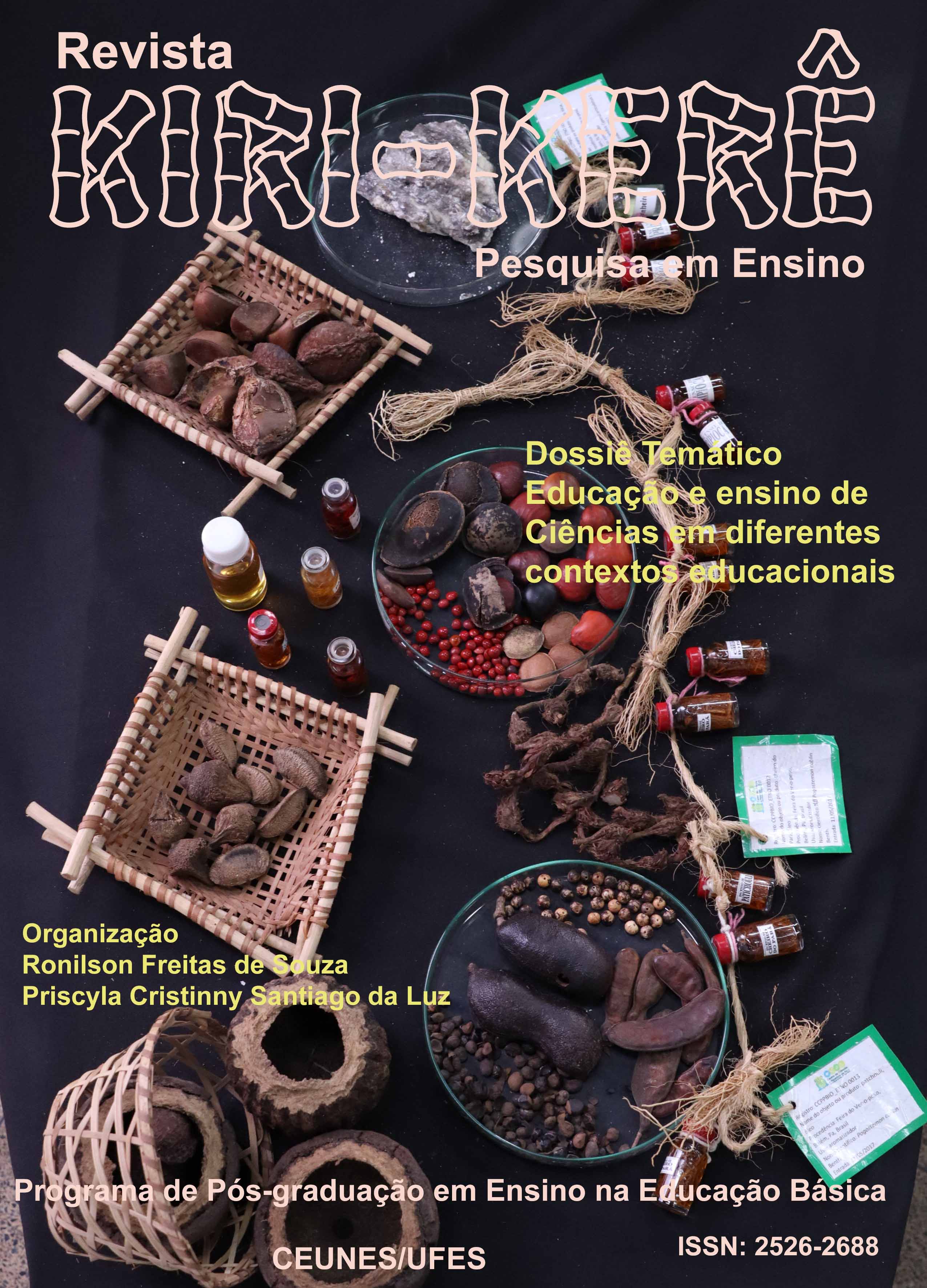Project-based learning in addressing socio-scientific issues
DOI:
https://doi.org/10.47456/krkr.v1i21.46508Keywords:
continuing training; project-based learning; socioscientific issues; interdisciplinarity.Abstract
With foundations in Project-Based Learning (PBL), along with the use and discussion of Socio-Scientific Questions (QSCs) with a view to improving teaching practice with a view to critical and reflective training. This project's main objective was to develop an interdisciplinary training action for teachers working in the final years of elementary school. The work is anchored in a qualitative methodology of an exploratory nature through action research. The research instruments were records of training meetings through audio recording, whose data were treated in the light of content analysis. After analyzing the data, the final category resulted in “Benefits of strategies developed by interdisciplinary training action using PBL for teaching practice”. When observing the results, we understand the need to share actions like these with other teachers, therefore, the organization and structure of this research can support the different levels of education who are interested in developing interdisciplinary projects, contributing to the formation of critical and reflective citizens.
References
BENDER, W. N. Aprendizagem baseada em projetos: educação diferenciada para o século XXI/ tradução: Fernando de Siqueira Rodrigues; revisão técnica: Maria de graça Souza Horn. - Porto Alegre: Penso, 2014. 159 p.
BOGDAN, R.C.; BIKLEN, S.K. Dados Qualitativos. Porto: Porto Editora, 1994.
CÂMARA, A. A. Formação continuada pela aprendizagem baseada em projetos: atuação no desenvolvimento profissional docente de professores formadores. 158 f. 2021. Dissertação (Programa de Pós-Graduação em Ensino Tecnológico) - Instituto Federal de Educação Ciência e Tecnologia do Amazonas, Manaus, 2021.
CONRADO, D M.; NUNES-NETO, N. F. Questões Sociocientíficas: fundamentos, propostas de ensino e perspectivas para ações sociopolíticas. Salvador: EDUFBA, 2018. p 17.
FAZENDA, I. C. A. Interdisciplinaridade: um projeto em parceria. 7. ed. São Paulo: Edições Loyola, 2014.
HODSON, D. Realçando o papel da ética e da política na educação científica: algumas considerações teóricas e práticas sobre questões sociocientíficas. In CONRADO, Dália Melissa. NUNES-NETO, Nei Freitas. (Orgs.). Questões Sociocientíficas: Fundamentos, propostas de ensino e perspectiva para ações sociopolíticas. Salvador: EDUFBA, 2018.
IMBERNÓN, F. Formação continuada de professores. Artmed Editora, 2010.
LEVINSON, R. Science education and democratic participation: an uneasy congruence? Studies in Science Education, London, v. 46, n. 1, p. 69-119, 2010. Disponível em: https://doi.org/10.1080/03057260903562433. Acesso em: 20/06/2022.
LIMA, J. Á. As culturas colaborativas nas escolas. Estruturas, processos e conteúdos. Coleção Currículo, Políticas e Práticas 15. Porto: Porto Editora. 2002.
MORIN, E. Introdução ao pensamento complexo. 5ed. Tradução de Elaine Lisboa. Porto Alegre: Sulina, 2015.
MORAN, J. Metodologias ativas para uma aprendizagem mais profunda. In: BACICH, L.; MORAN, J. (Org.). Metodologias ativas para uma educação inovadora: uma abordagem teórico-prática. Porto Alegre: Penso, 2018, p. 59-60.
PAVIANI, J. Interdisciplinaridade: conceitos e distinções. 3 ed. Caxias do Sul: Educs, 2014.
PIMENTA, S. G. Professor reflexivo: construindo uma crítica. In: PIMENTA, S. G.; GHEDIN, E. (Orgs.). Professor reflexivo no Brasil: gênese e crítica de um conceito. 7 ed., São Paulo: Cortez, 2012, p. 33.
THIOLLENT, M. Metodologia da Pesquisa-Ação. 18. ed. São Paulo: Cortez, 2011.
TRIPP, D. Pesquisa-ação: uma introdução metodológica. Revista Educação e Pesquisa. São Paulo: v. 31, n. 3, set/dez. 2005, p. 443-466.
ZABALA, A. A Prática Educativa. Como ensinar. Porto Alegre-RS. Artmed; 1998.
Downloads
Published
Issue
Section
License
Copyright (c) 2024 Suzane Pereira Miranda Marques, Senhora Milta

This work is licensed under a Creative Commons Attribution-NonCommercial 4.0 International License.
The authors accept, when sending their works, the assignment of their copyrights.


